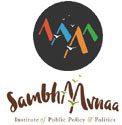
Perspectives: Ethnographic Research Methods for Activists
18-20 October, 2018
Those of us who identify ourselves as activist-researchers or, those of us who engage with vulnerable communities, inquiring into social realities, sometimes are faced with several questions & dilemmas. These are about ‘our’ role in the lives of ‘other people’? What their perspective on their own location and our role is, which may be different from our own. If you are engaging with socio-political issues and these questions are relevant to the work and research you do, you may be keen to engage in a dialogue with practitioners of sociocultural anthropology.
About Anthropology and its Peculiar Method
Anthropology was a key form of knowledge through which colonial rulers came to know about their ‘native subjects’ in the colonies –people who were different from people in European countries. Anthropology, thus, has struggled through the twentieth century, to come to terms with its methodology ethnography – the politics and ethics surrounding the use of this research method given the grossly unequal structure of global politics. The very practical choice of ‘field site’ and communities of ‘native’ subjects was made possible by imperial interest in societies of ‘difference’.
In the contemporary context, does this divide continue to exist between researchers/activists/community mobilisers belonging to privileged classes, castes, gender and the ‘community’ that they seek to engage with? If yes, how could they through their approach, bridge this divide?
Ethnography is the method of talking, seeing, documenting to establish a sense of other people’s lives – used by anthropologists. The notion of ‘difference’ is fundamental to this technique, while a long-drawn us-them grapple continues with ‘our’ lives of modernity. Ethnography and anthropology go hand-in-hand, but there are possibilities of usage of ethnographic method outside of the disciplinary domain of anthropology. Who are ‘we’? Who are ‘they’? These questions come to the forefront of many of our lives as people dealing with social concerns but operating outside of academia.
Objectives of the workshop
This workshop conducted over three days (see plan below) aims at:
- bringing ethnographic research techniques to people outside the university system, especially those who work in the activist mode and carry out documentation.
- Constructing research questions and dummy research projects touching on issues like exploitation, marginalisation, poverty, discrimination, misgovernance, conflict situations.
- Bringing to the forefront, the elements of mutual dialogue, situational sensitivity and understanding in furthering the work of activists.
Who is the workshop for?
This workshop will be useful for activist-researchers, change agents, journalists, lawyers, maybe even artists. If the work that you do specifically involves inquiring into, analysing, thinking and writing about life of communities/people whose lives are ‘different’ from yours, this workshop would provide some added perspective
Structure
The workshop explains what ethnographic research is and what kinds of things it can be useful for. It progresses along four two-hour sessions. The resource person will use the first two sessions to introduce ethnography as a research technique of anthropology. She will unpack what she likes to call ‘a point of view about points of view’. On the second session, she urges participants to develop a small research project and apply the method on their own research question. The final session focuses on a small writing assignment where each participant will share their work with rest of the group. The workshop would be for twenty participants.
Day 1 (October 18): Introduction (9 am – 1 pm)
- Brief lecture on ethnography and anthropology
- Why do research? – discussion
- Are activist agendas and academic research complementary? – discussion
- What is a research question? – discussion
- Ethics/Politics of representation
Afternoon – participants spend time drafting their own research question
Day 2 (October 19) Research Question and Method: ( 9 am to 1 pm)
- Participants present their research questions
- Everyone comments on each question
- Redrafting of questions
- How to take notes?
- Individual identification of site, subjects, themes
- Discussion of feasibility
Afternoon – Participants walk to the town bazaar to conduct interviews, observe and take notes.
Day 3 (October 20): Writing (9 am to 1 pm)
- Individual Presentation of ethnographic notes
- Discussion, comments
- Discussion of how to proceed if each project were to be undertaken on a longer term
About the facilitator: Atreyee Majumder: I am an anthropologist currently based in Bangalore. I received my doctoral degree at Yale University (2014). I was until June 2018, an Andrew Mellon Fellow at the University of Toronto. I have taught social sciences at the Azim Premji University and the University of Toronto. My book Time, Space and Capital in India (Routledge, forthcoming) is exploration of hinterland urbanism on the edges of the city of Calcutta. I am currently preoccupied with methods of taking anthropological knowledge outside the university system, and this workshop is part of that attempt.
Language: English with Hindi translation
Participants Contribution for the workshop: Rs. 3000/- Those who cannot make the full contribution could choose to make a partial one if they need it
Venue: Sambhaavnaa Institute, Palampur, Himachal Pradesh
Contact: For more information please Whatsapp or call Shashank – 889 422 7954 or email: programs@sambhaavnaa.org
Getting to Sambhaavnaa: https://www.sambhaavnaa.org/contact/how-to-reach-us/
Please fill the application form below:
